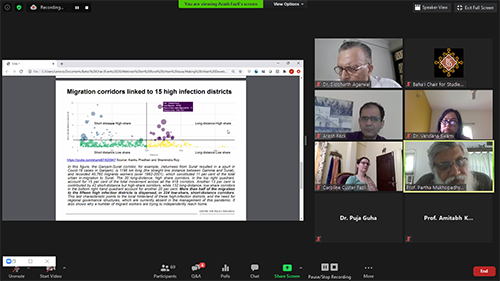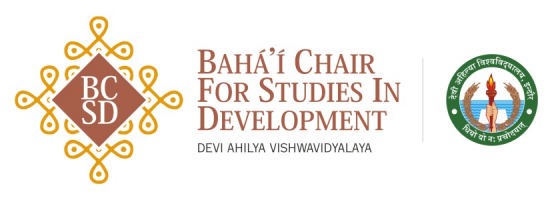Webinar on ‘Making Cities Belong to Those Who Build Them: Towards a More Inclusive Urbanization’

Symposium on ‘Building Moral Leaders: The Role of Education in Social Transformation’
January 24, 2023
Webinar on ‘Development with Participation: Towards a More Just and Prosperous Rural Economy’
January 23, 2024
11 JULY 2020
The Covid 19 pandemic in India led to the return of around 30 million people from the cities to villages and small towns. This crisis shed light of the exclusionary and exploitative nature of urbanization that depends on the cheap labour of a vast working class consisting of 500 million people living and working in dire conditions. This much-ignored segment of society no doubt needs to be protected with legal frameworks and structural changes to ensure dignified and safe living and working conditions for them. But there is also the need for more profound changes in the way they are perceived – not just as a source of labour, or as bundles of needs and wants but rather as full human beings with rich social, cultural and spiritual lives having much to contribute to the collective life of society. Studies have captured the creativity, ingenuity, and resilience, the strong social bonds and the ethic of mutual support and collaboration, among the urban poor living in slums and working in the informal sector.
This webinar aims to explore the challenge of making urban development more inclusive both at the structural level as well as in terms of the way the urban poor are conceived in development thought and urban policies. Click here for the webinar proceedings.
Event Highlights Photos

Speakers include Prof. Amitabh Kundu, Distinguished Fellow, Research and Information System for Developing Countries; Prof. Partha Mukhopadhyay, Senior Fellow, Centre for Policy Research, Delhi; Dr. Siddharth Agarwal, Director, Urban Health Research Centre, Delhi; Dr. Puja Guha and Dr. Vandana Swami, Assistant Professors at Azim Premji University, Bangalore and Ms. Caroline Fazli, Research Scholar, University of Bath, UK. The webinar was moderated by Dr. Arash Fazli of the Baha’i Chair.

